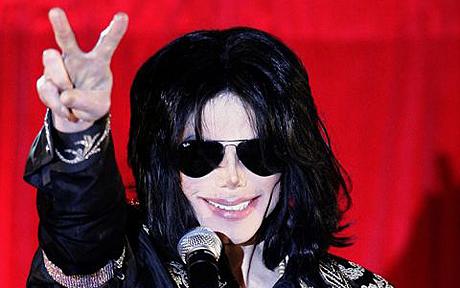Today (25th June 2012) marks 3 years since the death of Michael Jackson, the global icon and superstar of the 20th century, a man of exuberant talent in the world of popular music and probably the most famous man of his or any generation. His musical legacy is titanic and unparalleled, stretching across the four corners of the earth. His album ‘Thriller’ is still the greatest selling album in history. Inside the first year after his death he sold 35 million albums worldwide and became the first artist to have 1 million songs downloaded in the space of a week. His success and global recognition is difficult to quantify such is its enormity; he is synonymous with music and entertainment as a whole. As the world looks back on the life of one of the greatest recording artists in human history, there will be a mixture of fond reminiscence and shame. It is with this same shame that I confess that I have only come to see Michael Jackson as a true gift to modern society since his death.
Like most people I grew up listening to MJ, yet somewhere in between then and his death he became a villain; a ghoulish pariah embroiled in scandal and a celebrity distanced from his true talent. The highly debateable physical transformation had already materialised by the 1990s yet my early years only held visions of the young, handsome, leather-clad superstar of the 80s. This gradually became replaced by the pale, cloaked countenance of ‘Wacko Jacko’ and my appreciation for his music drifted into relative obscurity, right up until his untimely death.
My experience and perception of ‘The King of Pop’ reflects the horrific misconceptions that continuously haunted this enigmatic entertainer. The intense degradation of his character at the hands of the western media and a handful of people desperate to extort him, culminating in a modern day, quasi-crucifixion, goes some way to expressing the largely soulless and tainted essence of today’s popular culture and society. The growth of media moguls such as Rupert Murdoch and the birth of soulless celebrity gossip outlets such as E! And TMZ have often been fuelled by the ripe pickings of Jackson’s well-documented life. The skin-bleaching story. The ‘Neverland’ scandal. Even his death served as an event from which other people shamelessly sought to make money.
And yet here was a person who constantly gave to others. His success was built upon the foundations of an outstanding work ethic, a true adherence to perfecting his craft, a decision that he ultimately paid the price for. ‘This Is It’, the series of sold-out concerts he had planned to perform in London had totalled a staggering 50 shows. Spike Lee once said of Michael that:
“I’ve met a lot of great athletes, Michael Jordan, Kobe Bryant, and these guys are known for their work ethic. And as great as Michael [Jordan] was, and as great as Kobe is, Michael could give those guys a run for their money when it comes to work ethic.”
This is one of countless personal endorsements that were credited to Michael Jackson, for he was also one of the most prominent humanitarian philanthropists, donating over $300m through his Heal The World Foundation and supported more registered charities than any other pop star (his list of charitable actions is enormous*). In a week where tax avoidance in the rich and famous has come under the spotlight, this is the perfect time to look back at Jackson as a relatively selfless man considering his vast wealth. This tendency to give encompassed his meek, gentle nature and his childlike innocence, an innocence that made him a target in a harsh, cutthroat industry. His lyrics consistently point to a tormented soul ravaged by the accusations of others and the lamentations of racial and social inequality, the constant media speculation and a world bereft of good will and kindness. Behind the fast-paced dance tracks and catchy choruses lies a dark portrait of introversions and repressed frustrations.
There was an almost horrible inevitability to Michael Jackson’s death, an inevitability that raps on the door of many conspiracy theories-his 1997 track ‘Morphine’ has the same eerie tones as that of 2pac’s prophetic ‘Hail Mary’. Whilst we will never truly know how or why Michael Jackson died, he was another important public figure who did not conform to the highly manufactured requirements of western society. Thus, his death brings a legacy of social significance as well as musical importance into consideration. As tributes pour in and circulate the media organisations that contributed to his rise and fall, we should think of him as a shining light in the murky depths of the public stratosphere.
* List of all humanitarian efforts HERE *
Written By Jack McSweeny
TweetMe: @Jack_McSweeney




